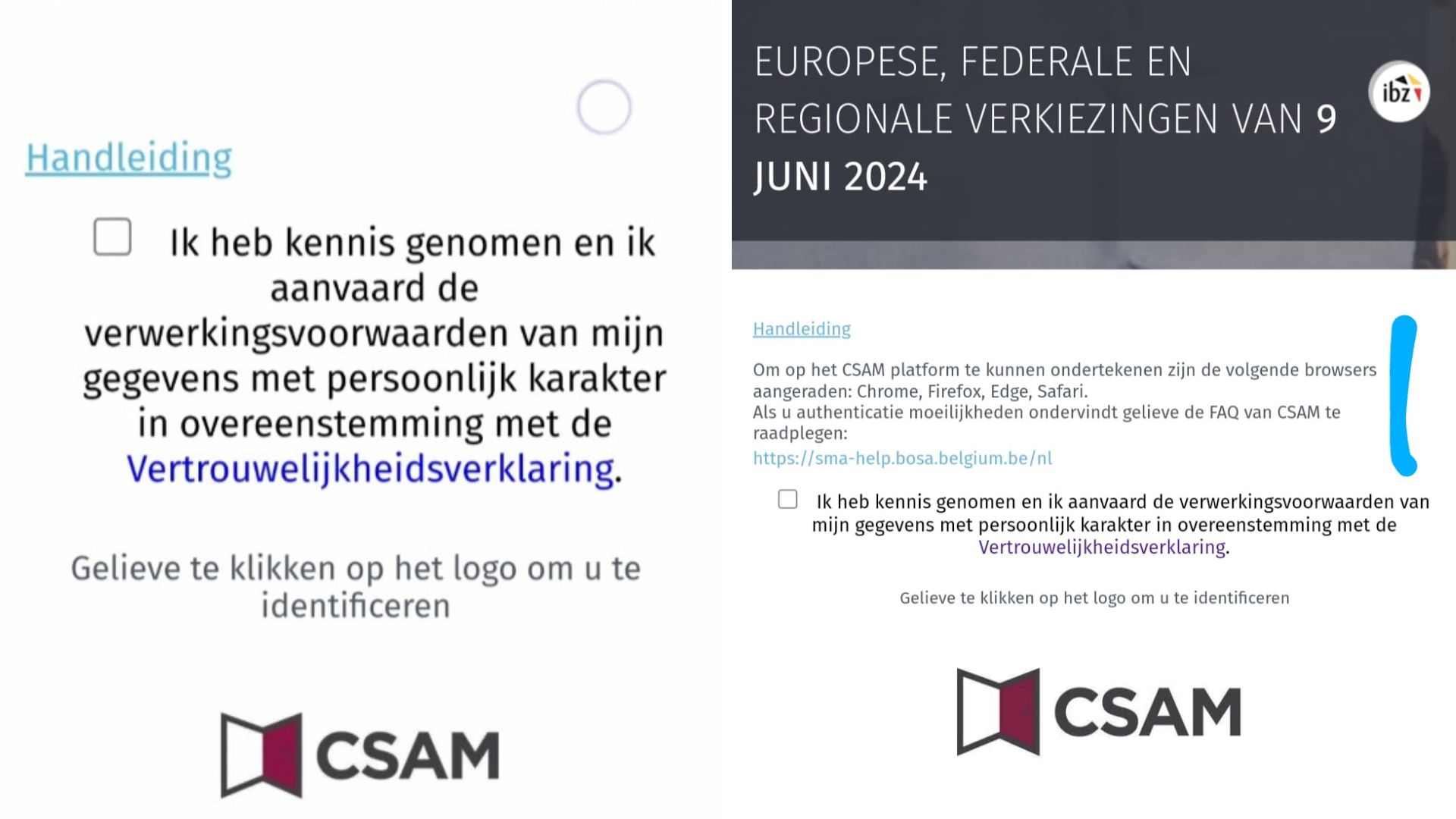Centrist pan-European party Volt Belgium is in a tussle with the Ministry of the Interior over its attempts to participate in the elections on 9 June, calling out a "cordon sanitaire" against new parties.
In its fight against Belgium's "particracy," Volt has complained that the odds for appearing on the ballot at the European elections are stacked against them, and are now filing a complaint with the Federal Ombudsman, according to a press statement.
The Ministry of the Interior’s online registration system has been beset by technical problems, Volt Belgium sustains – a claim also echoed by other parties such as the new Flemish party Voor U.
In Belgium, political parties have two options to run in elections: by gaining enough popular support (endorsements by citizens) or support from established parties.
Having prioritised collecting endorsements from citizens, the party reports that 47% of people using the Ministry of Interior’s online registration system have dropped out due to technical problems.
"We can see how many people click on the link taking them from our website to the government platform for endorsements," MEP and lead European candidate for Volt Sophie in ’t Veld told The Brussels Times. "If they click on it, it basically means they are starting the endorsement procedure. However, for every 100 people doing that, we get only 53 actual endorsements."
Users have complained to the party about technical problems as being one of the main reasons for dropping out – and the party is sustaining that they would have passed the threshold had the system worked properly.
While the Ministry of the Interior did not respond to The Brussels Times’ request for comment on the case being referred to the Ombudsman, the official platform for citizen endorsements has since had its text adjusted, and now contains instructions for the choice of browser.

The platform before (left) and then after the change was made to include information about browsers (right with blue mark).
"This is an obvious admission that the technical problems that we complained about are very real. However, the Ministry never communicated this to us. We will add this information to our complaint to the Ombudsman, as evidence," in ’t Veld continued.
Having made electoral reform a key part of its federal agenda for Belgium, Volt already has enough endorsements for several lists for the federal and Flemish elections, although the party is not standing in French-speaking Belgium. For the Dutch-speaking European list, Volt has almost half of the required 5,000.
'Blocking competition deliberately'
New parties also have the route of endorsements from sitting parliamentarians – which Volt also pursued.
However, several established parties (including those that introduced the current system) have stated they have "collectively and in principle" decided not to support the electoral participation of new parties.
The party is calling into question what it terms as an "invisible cordon sanitaire" on new political parties.
"Why would they apply the low bar to themselves, and the high bar to newcomers? What reason could there be, other than seeking to block competition (as one MEP admitted was the aim),” said in ’t Veld. "Why not apply the same requirements to all parties, new or established?"

Plenary session of the Chamber at the Federal Parliament, in Brussels. Credit: Belga / Benoit Doppagne
Some MPs from the mainstream parties have broken ranks to lend their support to Volt’s cause. Kristof Calvo, a Groen member who is standing in Wallonia for its French-speaking sister party Ecolo, has endorsed the party for their European list, saying that Belgium’s political system is "too closed."
In comparison with other countries, running for the European Parliament elections in all of Belgium requires 10,220 signatures. In The Netherlands (with 18 million inhabitants), it’s 30; and in Germany (83 million inhabitants), 4000.
"Don’t forget that on top of the endorsement requirements, there is a 5% threshold at the elections," in ’t Veld continued. "We expect to complete at least two more lists. So all in all we have gathered substantial support. This also mirrors the responses we get when we are out campaigning. People are craving political renewal."
While far-right nationalism resurges across the continent, Volt walks in the opposite direction as a pan-European movement which wants to establish a federal Europe.
The party has national chapters in various northern European countries. In Belgium, they have pledged to make electoral reform a top ten priority, and it appears the party has already begun its push for improving democratic participation in Belgium.

